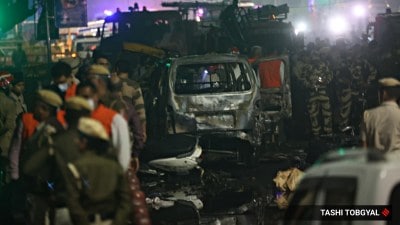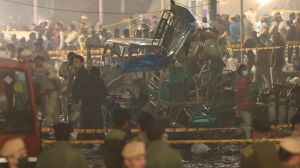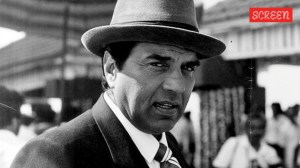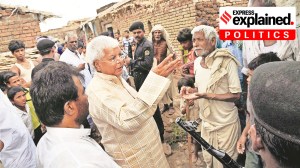Kamalesh Sharma is new C’wealth Secy Gen
It is a measure of Kamalesh Sharma’s self-confidence that he allowed his friends to refer to him as the Commonwealth Secretary General...

It is a measure of Kamalesh Sharma’s self-confidence that he allowed his friends to refer to him as the Commonwealth Secretary General-designate weeks before he was formally chosen for that position by the heads of government conclave in Kampala today.
Choosing a Commonwealth Secretary General is not quite as secretive as electing the Pope. There is no metaphorical smoke that emerges from the Retreat where political leaders — the cardinal equivalents of the Commonwealth community — meet to agree on a new head for their secretariat.
It is nevertheless a confidential process, albeit one that on this occasion was more predictable than it has been ever before. The reason for this predictability stems from the comfortable assurances that poured into Delhi from other member states of the Commonwealth and who, in the words of a Commonwealth insider, subscribe to the view that “India really is the flavour of the month and having someone from India means a lot.”
On the other hand, given the spectacular failure earlier this year to secure the election of Shashi Tharoor as Secretary General of the United Nations, Delhi was unlikely to stretch out its neck for another favourite son candidate for a prestigious international position without prior assurances that he would be ultimately chosen.
Sharma himself was pleasantly surprised by the private statements of support he received during his three-month canvassing tour, funded by the Government of India, that took him to Africa, the Caribbean, Asia and the Pacific earlier this year.
“We are very conservative in offering candidates for such positions,” he explained earlier, in an exclusive interview in his office in London where he has been India’s High Commissioner for the past three-and-a-half years. “But there has been no Asian candidate as Secretary General and the sentiment had been building for a very long time that Asia should do it. That in a way turned out to be the case because after me there was a Malaysian candidate, but in the end Malaysia withdrew and supported India, making for a very clean Indian slate.”
Sharma becomes the first Indian and the first Asian in more than 40 years to be selected to the top slot. His other rivals were Maltese foreign minister Michael Frendo and a freelance Commonwealth bureaucrat of Indian origin, Mohan Kaul, chief executive of the Commonwealth Business Council. Out of the two it was always Frendo who posed the greater challenge. At 53, he was over a decade younger than Sharma and, as foreign minister, he had the advantage of face-to-face contacts with government heads entrusted with electing the new Secretary General. Kaul was never the chosen candidate of any Commonwealth government, a pre-requisite for being a serious contender for the job.





- 01
- 02
- 03
- 04
- 05


























